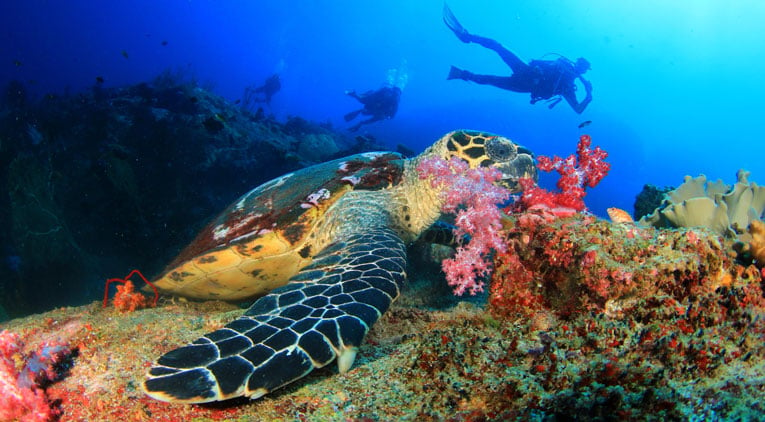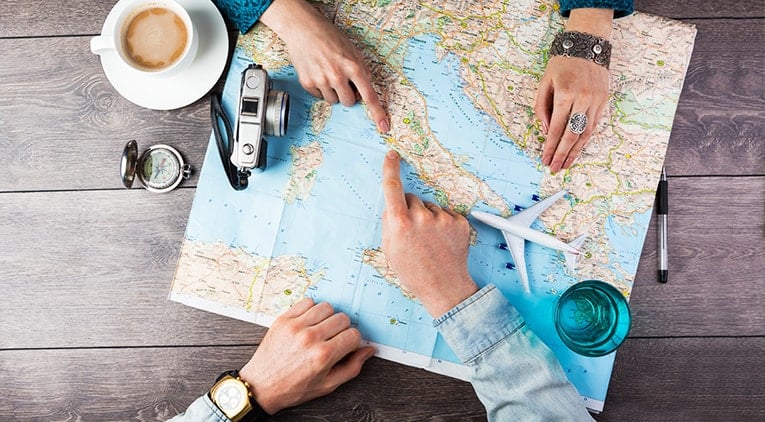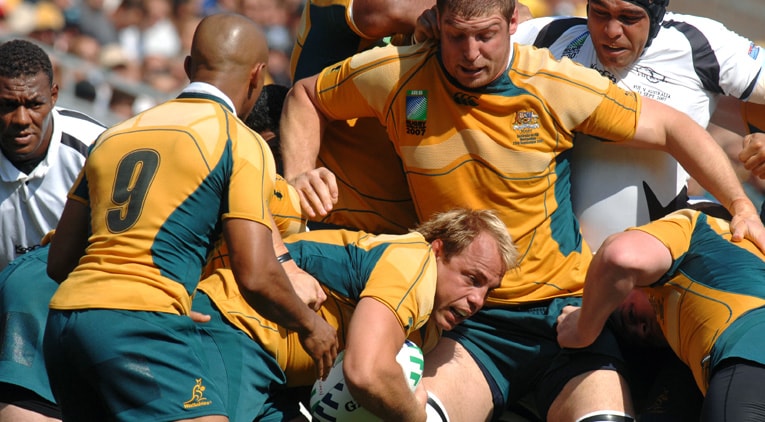 Must-Follow Diving Tips For Asia
Must-Follow Diving Tips For Asia

Scuba diving is an adventurer’s odyssey. Eerie and mysterious, the slow-motion and weightless world of scuba diving offers travellers a chance to explore the boundless depths of the ocean. But few regions are as diverse and breathtaking as the waters surrounding Asia. From Explosion Reef in Cambodia to Cannibal Rock in Indonesia, the underwater scenery is almost as shocking as the names themselves. But before you take the ultimate travel plunge and dive into the depths of Asia’s best scuba spots, take note of our must-follow tips so you can get the very best out of Asia’s underwater world.

PADI and SSI are the world’s two main diving certifiers. Recognised globally and trusted locally, a PADI or SSI certification is a ticket to the world’s

Most Asian countries have a diving season and it is sometimes forbidden to dive outside of these designated periods. In the Maldives, for example, the month of December is fully

Before you

This tip goes for diving anywhere in the world. Take nothing but pictures, leave nothing but bubbles and touch only the ocean. The ocean is the largest living space on Earth and many beaches all but disappear under flocks of holiday-makers each year. Our oceans have innumerable wonders to show us and every dive has the potential to take you on an extraordinary journey. No matter how many times you dip below the waves, you never know what you’re going to see. So don’t let your presence take a toll on Asia’s stunning marine life, and always remember you are a guest.

Some of the most incredible diving spots in Asia are only a stones-throw away from the world’s most infamous ‘anything goes’ party islands. However, first-rate diving locations and idyllic year-round conditions mean many travellers can sign-up for a scuba session as an afterthought, and still avoid the tourist traps. For example, Koh Tao in Thailand is a brilliant place to learn how to dive and it is an easy ferry ride away from notorious party island Ko Pha-Ngan. Koh Tao is one of the few places on Earth where it’s possible to spot whale sharks and it’s an easy add-on to any Thailand trip.

If you plan to dive in Asia visit your doctor for a quick check-up before you fly out. If you’re travelling to Asia it’s always wise to visit your GP, whether you’re diving or not, so why not get a diving check at the same time? In Australia, all

Scuba diving is covered by 1Cover as long as you hold an open water diving licence that is recognised in Australia or
 Long-term travel isn’t a holiday, there are a few things you need to think about.
Long-term travel isn’t a holiday, there are a few things you need to think about.
 There are certain tough lessons that going out on the road will force you to learn.
There are certain tough lessons that going out on the road will force you to learn.
 We’ve developed something of a reputation abroad. Sometimes good, sometimes bad.
We’ve developed something of a reputation abroad. Sometimes good, sometimes bad.
 You’ll definitely buy one of these.
You’ll definitely buy one of these.
Have a fun, safe & enjoyable holiday with our guide to staying safe in Bali.
1Cover’s UK Survival Guide is packed full handy hints, tips and tricks from those in the know.